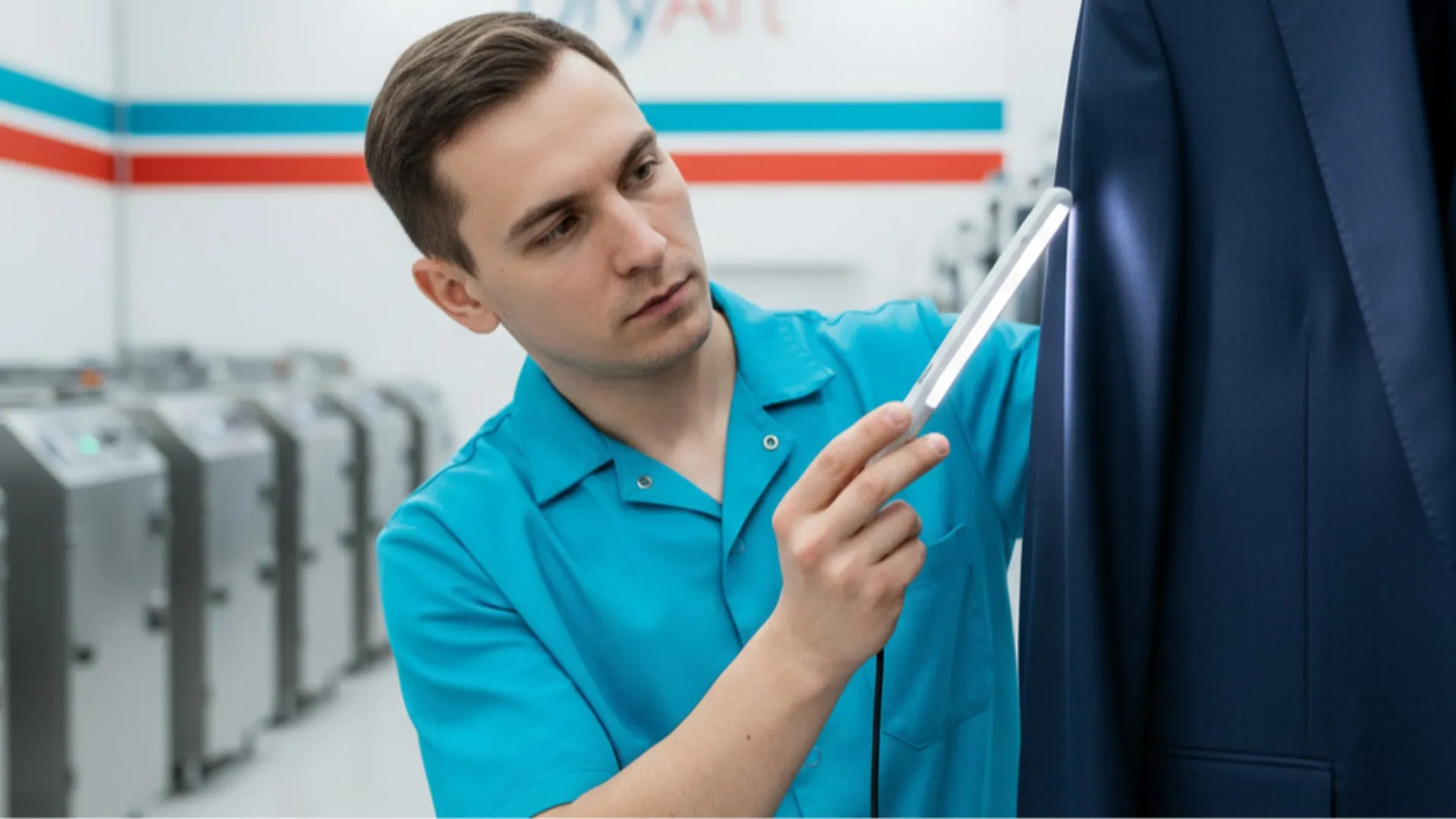The Difference of Professional Dry Cleaning: Impact on Hygiene and Quality
From a corporate perspective, the difference of professional dry cleaning extends far beyond appearance, offering multi-dimensional value. The professional dry cleaning difference generates direct added value in areas such as hygiene management, fabric durability, record keeping, and traceability. Key areas include: Hygiene and microorganism control—ensuring corporate health standards through solvent regulation, temperature control, drying procedures, and trained personnel. Fabric preservation—specialized treatment processes that maintain delicate fiber integrity and increase reuse rates. Stain removal expertise—combining chemical and mechanical techniques to minimize potential damage. Record and traceability—reporting systems that support warranty tracking and supply chain compliance. Large-scale operations such as curtain washing benefit from industrial-grade equipment and logistics, ensuring continuous operation. Standardized maintenance protocols aligned with institutional quality parameters reinforce long-term efficiency. For decision-makers, these elements serve as measurable criteria in supplier selection and help reduce long-term costs while preserving brand reliability.
Risks of Home Dry Cleaning and Causes of Fabric Damage
Unsupervised home-based interventions can lead to serious risks in institutional contexts, increasing costs and reducing fabric lifespan. The professional dry cleaning difference mitigates improper solvent use, incorrect temperature settings, inadequate drying, and poor stain removal through preventive protocols. Corporate textile policies should integrate professional standards, as home treatment of suits can cause seam deformation, lining damage, and color fading. Similarly, improper curtain washing methods may result in imbalance and drying issues; professional dry cleaning provides industrial-scale solutions to prevent these failures. Additionally, workplace safety is reinforced through proper equipment handling, solvent vapor control, and fire prevention measures. While home solutions may appear cost-effective short term, professional dry cleaning significantly lowers long-term rework, product loss, and brand reputation risks. Business managers should prioritize supplier partnerships aligned with professional dry cleaning criteria and adopt comprehensive textile care and training policies.
Industrial Advantages of Professional Dry Cleaning Services
For public and private organizations alike, choosing the right service provider directly affects efficiency, sustainability, and compliance goals. The professional dry cleaning difference ensures seamless integration, operational continuity, and predictable maintenance budgets. A qualified provider aligns textile care programs with institutional policies and quality standards, defining maintenance plans, audits, and quality control procedures. Corporate contracts should include high-volume services such as curtain washing, wedding dress cleaning, and suit care. Service agreements must clearly outline processing times, stain removal guarantees, ironing coverage, packaging standards, and express emergency options. Professional dry cleaning also provides guidance in supply chain compliance, environmental reporting, and certification requirements. Decision-makers are encouraged to consult resources like service pages and industry documentation for in-depth analysis. In corporate planning, professional dry cleaning supports cost transparency, process optimization, and measurable reporting capabilities.
Eco-Friendly Dry Cleaning Methods for Safe Textile Care
Environmental responsibility and regulatory compliance play central roles in shaping corporate cleaning choices. The professional dry cleaning difference ensures consistent implementation of eco-friendly practices, solvent management, waste disposal, and energy-saving protocols. Environmental performance indicators become decisive in supplier selection, while transparency is maintained through sustainability reporting, chemical usage logs, and employee training. Monitoring chemical formulations is essential for occupational health and safety, and professional dry cleaning guarantees adherence to safety standards. Companies should evaluate laundry providers according to environmental compliance and operational risk reduction objectives. Additional insight can be found in resources like solvent and fabric impact studies. Professional dry cleaning also supports compliance with legal requirements, waste management, and supplier performance assessment, enabling organizations to balance cost efficiency with sustainability while maintaining their reputation.
Time and Performance Efficiency in Business-Specific Dry Cleaning Services
Time management and performance efficiency are central to corporate productivity indicators. The professional dry cleaning difference is reflected in customized contracts, reduced processing times, and optimized logistics planning. Standardized processes reduce operational workload and minimize reprocessing needs. Express cleaning services ensure continuity during urgent requests, while packaging, ironing, and quality checks guarantee field-ready delivery. In high-volume operations such as curtain and garment cleaning, optimized time management lowers storage costs and improves inventory turnover. Standardization within maintenance cycles should be supported by supplier performance reports and service level metrics. Business leaders should prioritize providers with strong reporting systems, emergency readiness, and training programs. A professional approach establishes measurable cost savings and continuous improvement in quality assurance systems.



